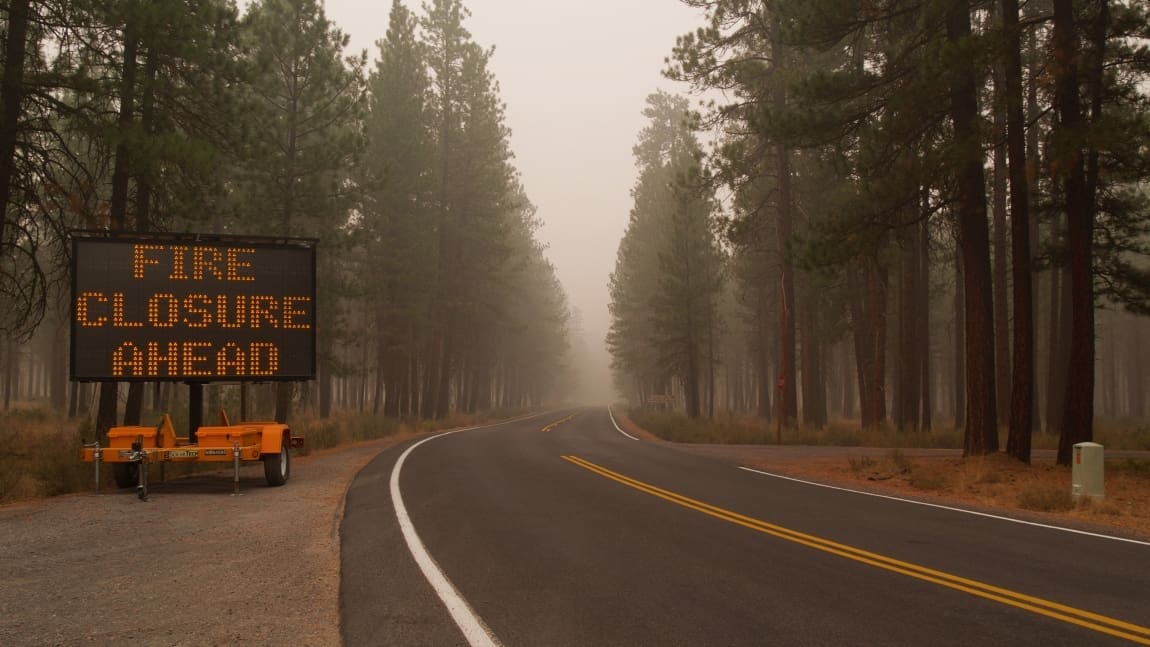By Molly Rosbach, Oregon State University
Oregon State University researchers found that U.S. adults are fairly confident in linking wildfires and heat to climate change, but less confident when it comes to other extreme weather events like hurricanes, flooding or tornadoes.
The recent study found that politics and personal experience played significant roles in people’s responses: Self-identified Republicans were less likely than Democrats to attribute extreme weather events to climate change, though Republicans who had personally experienced negative impacts from extreme weather events were more likely to link them to climate change than those who hadn’t.
Looking at extreme weather events across the board, 83% of survey respondents said there is some link between these events and anthropogenic, or human-caused, climate change. About 17% thought climate change had nothing to do with extreme weather.
“There is a growing field of scientific extreme event attribution to climate change, but we know less about what the public thinks,” said Hilary Boudet, co-author on the study and an associate professor in OSU’s College of Liberal Arts. “This work helps us to better understand public perceptions of event attribution to climate change. What the public thinks is important because these perceptions shape individual behavior and policy support.”
The study, published in the journal Climatic Change, used data from September 2021 from 1,071 adults across the U.S. who participated in a recurring biweekly AmeriSpeak Omnibus survey. The researchers asked respondents about five different extreme climate events — wildfires, heat, rainfall/flooding, hurricanes and tornadoes — and how confident they felt linking the increasing frequency and severity of each event to anthropogenic climate change.
Respondents had to rate their confidence on a scale of 1 to 5, so someone who felt absolutely certain that climate change is to blame for increased wildfires would choose “5” for that question. The survey also asked whether respondents had personally experienced any negative impacts from the five different types of extreme weather.
Researchers found that more than 47% of people were “very” or “extremely confident” in linking increased wildfires to climate change, and roughly 42% of people were very or extremely confident linking extreme heat to climate change.
Out of all five weather event types, Republicans and Democrats were farthest apart on the measure of extreme heat, and closest on hurricanes. Race, education and income also played a role in people’s responses.
The survey did not ask why respondents chose the numbers they did, but co-author Philip Mote, a professor in OSU’s College of Earth, Ocean, and Atmospheric Sciences, said researchers have some theories.
For example, the impact of wildfires spreads far beyond the physical flames. During the massive wildfires in eastern Canada last year, New Yorkers 1,500 miles away were suffering from poor air quality as a result of smoke drifting from those fires, Mote said. Conversely, hurricanes, tornadoes and floods in the U.S. tend to affect a relatively narrow areas, he said.
The study also reported how closely the public attribution of extreme weather events aligned with scientific consensus around extreme weather and climate change. Alignment was weakest on the measure of wildfires; Mote linked this to the narrow scientific definition, which only records the number of extreme fires, rather than overall fire weather. The general public is more likely considering all the hot, dry conditions that contribute to worsening wildfires amid climate change, he said.
Researchers say that understanding and improving public perceptions of extreme weather linked to climate change is crucial for maximizing the impact of mitigation efforts, such that resources are directed toward actions that can make a real difference, rather than toward the types of events that trigger the largest public response.
Lead author on the study was recent OSU doctoral graduate Chad Zanocco, now at Stanford University. Mote is also the vice provost and dean of OSU’s Graduate School.
More information: Zanocco, C., Mote, P., Flora, J. et al, ‘Comparing public and scientific extreme event attribution to climate change’, Climatic Change (177, 76; 2024). DOI: 10.1007/s10584-024-03735-0; Oregon State University – Press Release; Featured image credit: Oregon State University | CC BY-SA 4.0




